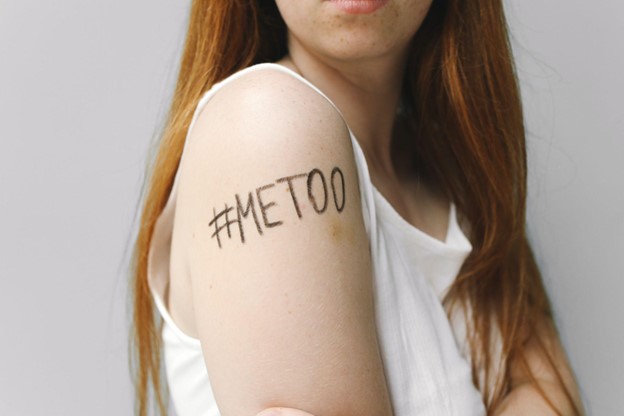Now Reading: From #MeToo to Justice: Embrace the Impact of Sexual Harassment Attorneys
-
01
From #MeToo to Justice: Embrace the Impact of Sexual Harassment Attorneys

From #MeToo to Justice: Embrace the Impact of Sexual Harassment Attorneys
The #MeToo movement has been a pivotal force in raising awareness about the prevalence of sexual harassment in various spheres of society. As survivors have courageously come forward to share their stories, the importance of legal recourse and representation in the pursuit of justice has become increasingly evident. Sexual harassment attorneys play a crucial role in advocating for victims, navigating complex legal frameworks, and fostering a culture of accountability. This article delves into the significant impact that sexual harassment attorneys have had since the emergence of the #MeToo movement, highlighting their role in empowering survivors and driving meaningful change.
The Role of Sexual Harassment Attorneys in Empowering Survivors
Sexual harassment can have profound and lasting effects on the lives of survivors, often leading to emotional, psychological, and professional challenges. In the wake of the #MeToo movement, sexual harassment attorneys have emerged as powerful allies for survivors seeking justice. These attorneys provide a safe and supportive environment where survivors can share their experiences, ensuring their voices are heard and validated.
Creating a Safe Space
Sexual harassment attorneys are trained to approach survivors with empathy and sensitivity, creating a safe space for them to share their stories. By offering a nonjudgmental platform, attorneys empower survivors to break their silence and take the first step toward healing.
Guidance and Counseling
Beyond legal representation, sexual harassment attorneys often offer emotional support and counseling to survivors. This holistic approach addresses the emotional toll of harassment and helps survivors regain a sense of control over their lives.
Navigating Legal Processes
Sexual harassment cases involve intricate legal processes that can be overwhelming for survivors to navigate alone. Attorneys play a pivotal role in explaining the legal options available, outlining potential outcomes, and guiding survivors through each step of the legal journey.
Navigating the Legal Landscape: Sexual Harassment Laws and Regulations
Navigating the legal landscape of sexual harassment cases requires a deep understanding of relevant laws and regulations. Sexual harassment attorneys are equipped with the knowledge and expertise to navigate these complexities and advocate effectively for their clients.
Title VII of the Civil Rights Act:
This landmark federal law prohibits workplace discrimination, including sexual harassment, based on gender. Sexual harassment attorneys leverage Title VII to hold employers accountable for fostering a safe and inclusive work environment.
State Laws and Statutes
In addition to federal laws, many states have enacted their own legislation addressing sexual harassment. Attorneys are well-versed in these state-specific laws, ensuring that survivors are protected under the relevant statutes.
Statute of Limitations
Sexual harassment attorneys are knowledgeable about the statute of limitations, which dictates the timeframe within which a survivor can file a lawsuit. Their expertise ensures that survivors do not miss out on seeking justice due to timing constraints.
Catalyzing Cultural Change through Legal Action
One of the most profound impacts of sexual harassment attorneys is their role in catalyzing cultural change. By representing survivors and pursuing legal action against perpetrators and institutions, attorneys send a powerful message that harassment will not be tolerated.
Accountability for Perpetrators
Sexual harassment attorneys play a pivotal role in holding perpetrators accountable for their actions. Through legal proceedings, attorneys work tirelessly to ensure that those who engage in harassment face consequences, sending a clear message that such behavior will not go unpunished.
Institutional Change
Sexual harassment often thrives in environments where institutions turn a blind eye or fail to take appropriate action. Attorneys challenge these institutions, advocating for policy changes, awareness training, and improved reporting mechanisms to prevent future incidents.
Precedent Setting
Landmark sexual harassment cases set legal precedents that influence future rulings and shape societal norms. Attorneys who represent survivors in such cases contribute to establishing a legal framework that reinforces the importance of consent, respect, and equality.
Overcoming Challenges and Shaping the Future
While sexual harassment attorneys have made significant strides, they also face challenges that impact their ability to create lasting change.
Barriers to Reporting
Many survivors still hesitate to report instances of sexual harassment due to fear of retaliation or disbelief. Attorneys continue to work on breaking down these barriers, advocating for survivor-friendly reporting processes.
Cultural Resistance
Changing deeply ingrained cultural norms surrounding harassment requires ongoing effort. Attorneys engage in public awareness campaigns and education initiatives to challenge societal attitudes and promote respect and equality.
Intersectional Advocacy
Sexual harassment disproportionately affects individuals from marginalized communities. Attorneys recognize the importance of intersectional advocacy, addressing the unique challenges faced by survivors of different backgrounds.
Conclusion
The journey from the #MeToo movement to achieving justice is a complex and multifaceted one. Sexual harassment attorneys have emerged as instrumental figures in this journey, providing survivors with the legal representation, emotional support, and advocacy needed to navigate a challenging terrain. Their impact extends beyond individual cases, fostering cultural change and shaping a future where harassment is unequivocally condemned. As we continue to embrace the profound impact of sexual harassment attorneys, we move closer to a world where justice prevails and survivors’ voices are not only heard but also validated and empowered.

Early in his journalism college years, Kerry had a revelation: there were not nearly enough law communicators. People’s difficulties in understanding the law, procedures, and how the justice system worked stemmed from the fact that no one took the patience to explain complicated matters to them. Therefore, he took upon himself the task of helping people navigate legal matters easier. He works with attorneys and other legal journalists and spends time researching so that everyone – from a mother whose child got a bike injury to a company needing insurance counsel – to find the actionable answers they are looking for.










